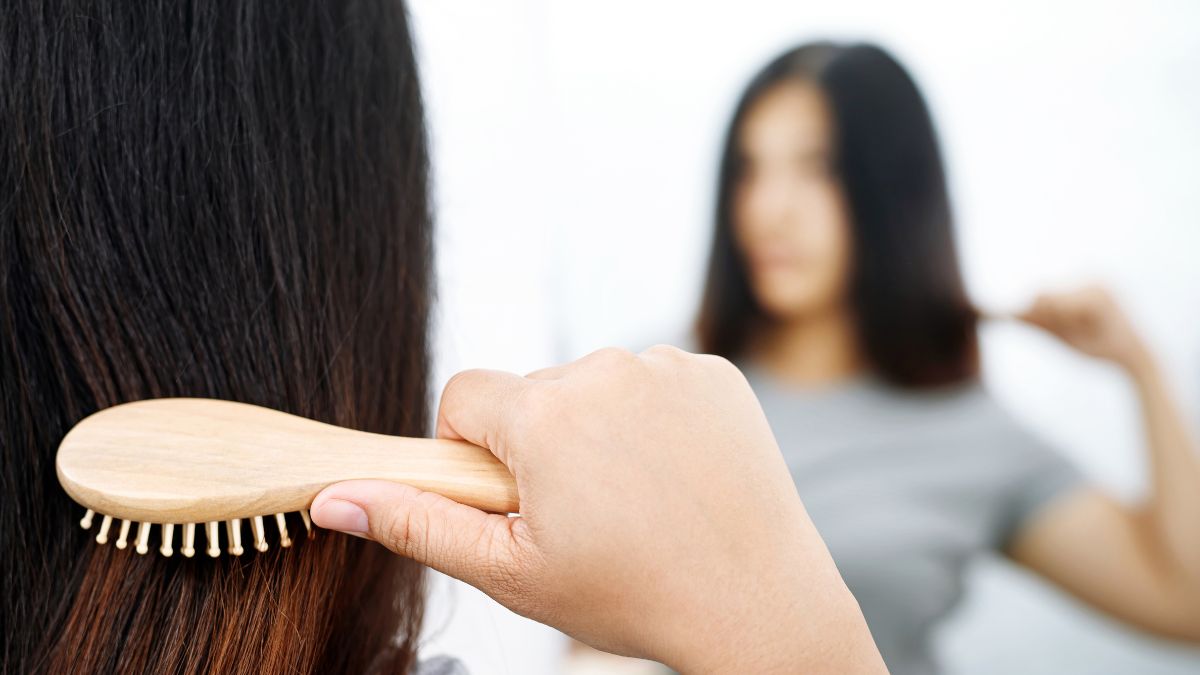The latest beauty revolution isn’t found in a new shade of lipstick or a high-tech serum—it’s happening at the very top of our heads. Scalp self-care, once overlooked as a minor part of hair maintenance, has become the newest wellness frontier, sparking a movement that connects healthy roots with stronger, shinier strands and long-term beauty confidence.
Industry experts note that scalp health has long been an invisible factor in overall hair quality. A dry, oily, or inflamed scalp often leads to breakage, dullness, dandruff, and even early hair loss. Yet for decades, treatments focused mainly on the visible lengths of hair, ignoring the foundation: the scalp. That mindset is changing rapidly in 2025. From TikTok tutorials featuring rosemary oil massages to professional scalp detox treatments in high-end salons, attention has shifted toward the root cause of hair concerns.
This rise is not only fueled by social media trends but also backed by dermatological science. Healthy follicles thrive in a balanced scalp environment, making scalp self-care more than just cosmetic indulgence—it’s preventative care. By merging self-care rituals with clinically proven results, this movement reflects a larger cultural shift where beauty is synonymous with wellness.
The Science Behind Scalp Self-Care
Healthy hair begins where it grows—at the scalp. Dermatologists and trichologists emphasize that the scalp functions much like facial skin, complete with pores, oil glands, and a microbiome that requires balance. Ignoring it can lead to clogged follicles, irritation, and thinning strands.
Scientific research shows that scalp massage, exfoliation, and hydration stimulate circulation, delivering oxygen and nutrients to hair follicles. This promotes thicker, healthier growth and slows shedding. Products infused with ingredients like salicylic acid, niacinamide, or rosemary oil are particularly effective at cleansing buildup, reducing inflammation, and boosting blood flow.
The beauty industry has tapped into this knowledge, introducing scalp-specific serums, scrubs, and tonics. Unlike traditional haircare, which targets only visible strands, these treatments address issues at the root level. The science is clear: consistent scalp maintenance not only prevents dandruff and itchiness but also prolongs the hair growth cycle, making it a vital part of long-term wellness.
Social Media and the Rise of a Trend
Platforms like TikTok and Instagram have transformed scalp self-care from a niche routine into a mainstream movement. Short-form videos demonstrate easy techniques—ranging from essential oil massages to DIY scalp scrubs—making the practice accessible to millions.
Influencers highlight scalp gua sha tools, exfoliating brushes, and luxurious scalp oils, framing them as both beauty rituals and mindfulness practices. Viral hashtags like #ScalpCare and #HealthyScalp have reached billions of views, showing just how quickly the concept has captured attention.
Celebrity endorsements have also boosted momentum. When stars like Cardi B or Kourtney Kardashian share their scalp-care routines, it sparks consumer curiosity and demand. Social media doesn’t just amplify products—it reframes scalp self-care as self-love, positioning it alongside skin and body care. For Gen Z especially, it aligns with a wellness-focused mindset that values prevention over repair.
From Fad to Future—The Business of Scalp Wellness
What began as a trend is quickly becoming a billion-dollar category. Beauty brands from luxury labels like Oribe to mass-market players like Head & Shoulders are launching scalp-focused product lines.
Retailers report record sales of exfoliating shampoos, detox serums, and scalp massage devices, proving consumer appetite is more than fleeting. High-end salons now offer “scalp facials,” while tech-driven tools like scalp analyzers allow personalized treatments.
The business boom reflects a broader cultural change: consumers no longer separate beauty from health. Scalp self-care is marketed not as vanity, but as proactive wellness, similar to skincare and supplements. Experts predict the market will expand further as more people prioritize longevity in hair health, making scalp wellness less of a fad and more of a permanent category in global beauty.


